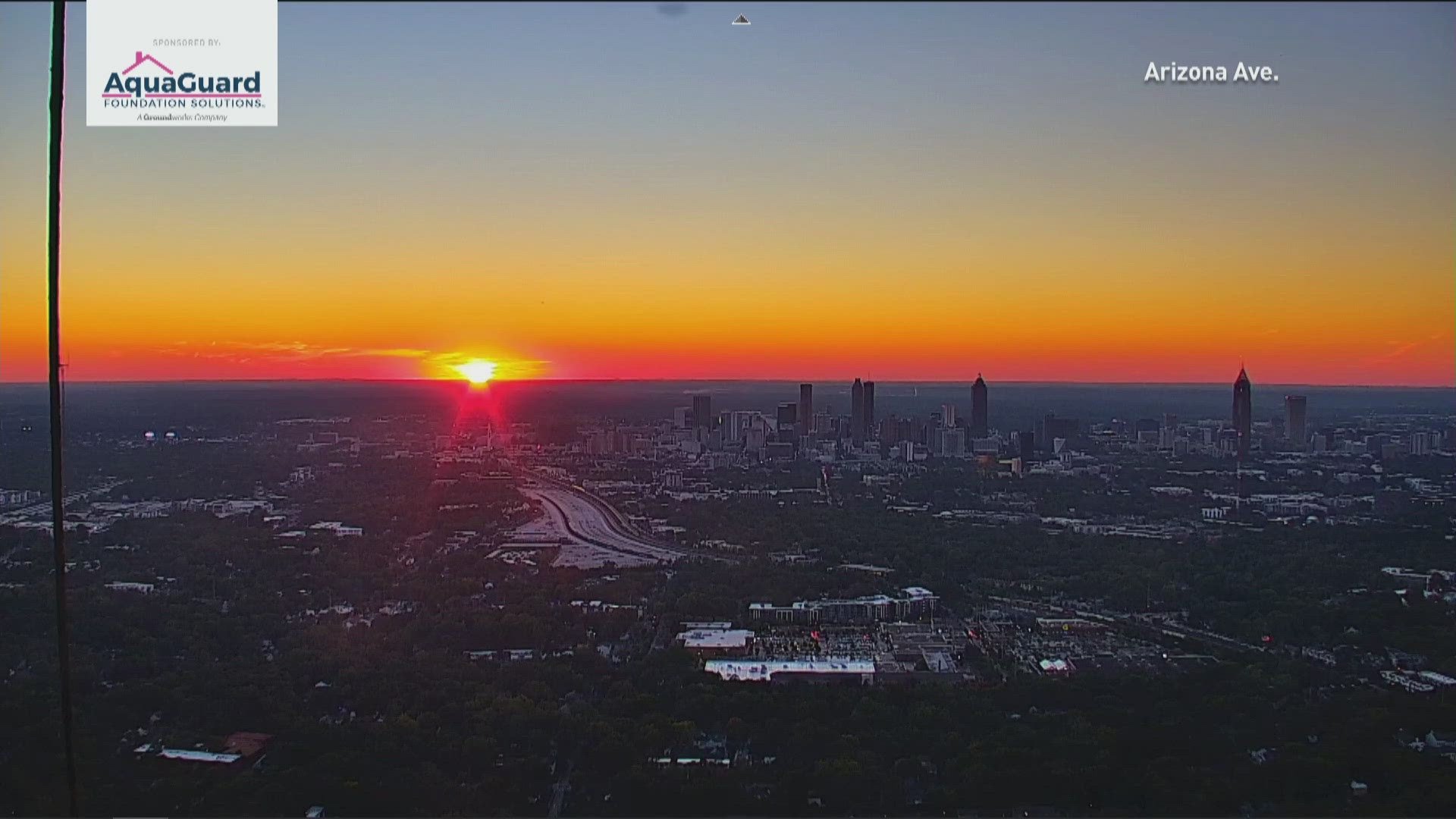ATLANTA — The Winter Solstice marks the start of Astronomical Winter. Saturday, Dec. 21 at 4:20 a.m., the sun will be over the Tropical of Capricorn, its furthest point north it will get through the year.
Saturday will also be the shortest day of the year for all areas in the Northern Hemisphere. In Atlanta, we'll have 9 hours 54 minutes and 32 seconds of daylight. Sunrise will be at 7:38 a.m. with a Sunset time of 5:33 p.m.
After Saturday, we will start to add seconds of daylight each day. By the Summer Solstice in June, Atlanta will experience 4 hours and 29 minutes of extra daylight than on the Winter Solstice.
Even though it is our shortest day of the year, it is not our latest sunset. That happened earlier this month. But our sunrise times have been getting later, accounting for the "shrink" in minutes of daylight each day.
Meteorologists say winter starts a little earlier
Although the official start of Astronomical Winter is Dec. 21, meteorologists lump the seasons together based on weather trends for climate record-keeping.
Meteorological Winter is comprised of December, January, and February -- the coldest months of the year.
Here's a break down from the 11Alive Weather Impact Team on what types of weather we will see
Why do we have seasons?
We have seasons because the Earth rotates around the sun on a tilted axis! Twice a year, the sun's path reaches its southernmost or northernmost point in relation to the earth.
When the sun is closest to the South Pole, it is the Winter Solstice in the Northern Hemisphere. When the sun is closest to the North Pole, it is the summer solstice for the Northern Hemisphere.
When the sun's rays are perpendicular over the equator, it is an equinox. We have the Vernal Equinox each March, and the Autumnal Equinox each September.

